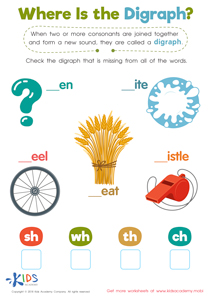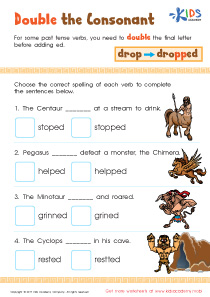Normal Beginning Consonants Worksheets for Ages 4-8
9 filtered results
-
From - To
Discover fun and engaging "Normal Beginning Consonants Worksheets for Ages 4-8" at Kids Academy. These expertly designed worksheets help young learners recognize and practice initial consonant sounds, essential for their early reading development. Featuring vibrant illustrations and diverse activities, kids will enjoy tracing, matching, and identifying sounds to enhance their phonetic awareness. Perfect for use at home or in the classroom, these worksheets build foundational literacy skills in an interactive, enjoyable manner. Tailored for children aged 4 to 8, Kids Academy ensures every learner progresses at their own pace while having fun with language. Download your free worksheet today!


Vowel and Consonant Sounds: Assessment Worksheet
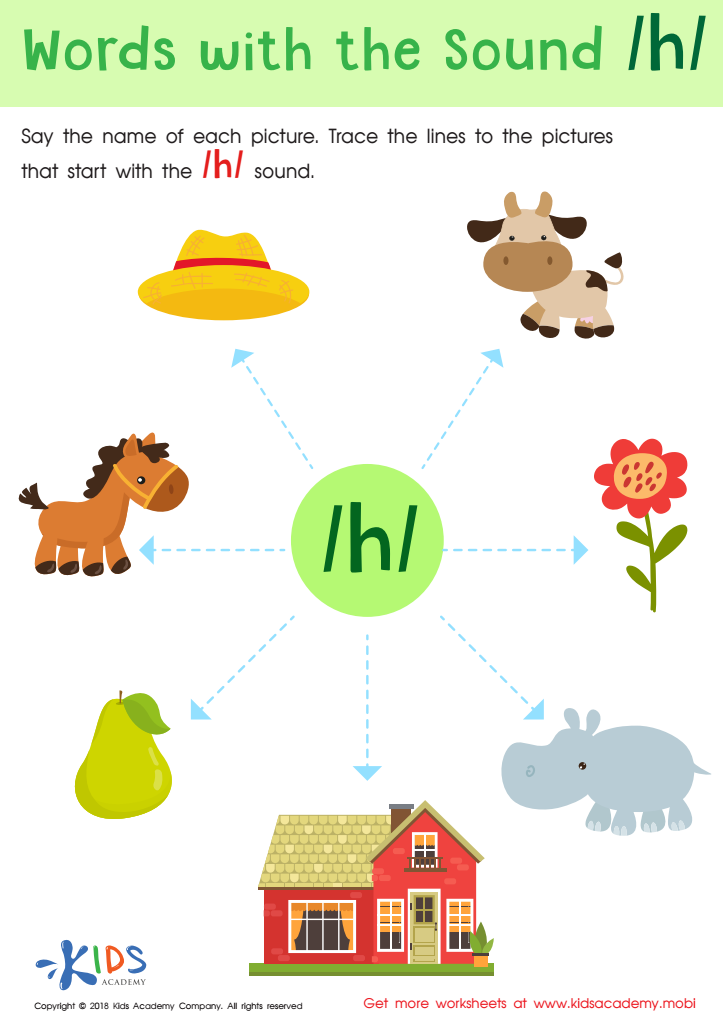

Words with sound h Reading Worksheet


Twin Onset Worksheet
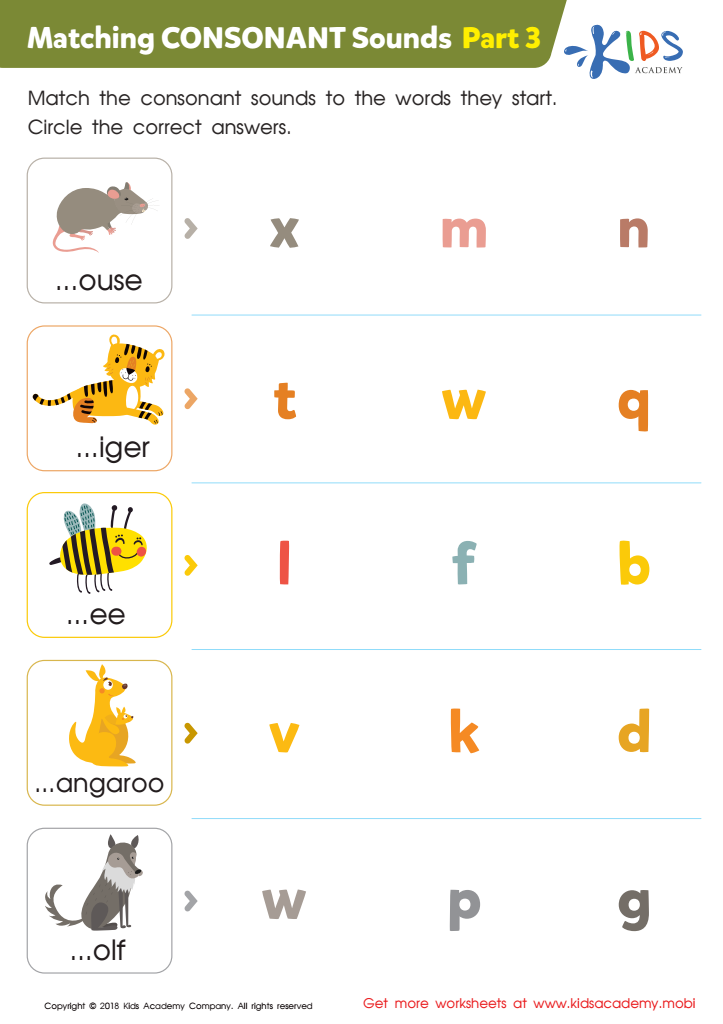

Matching Consonant Sounds: Part 3 Worksheet


Words with sound p Reading Worksheet
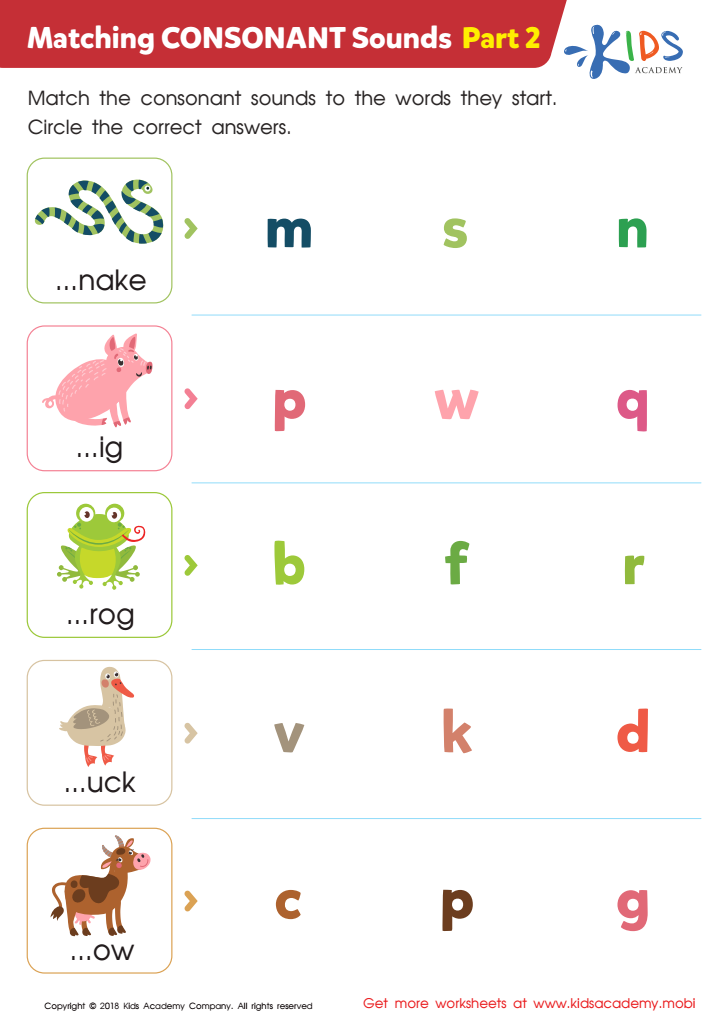

Matching Consonant Sounds: Part 2 Worksheet


Words with sound f Reading Worksheet
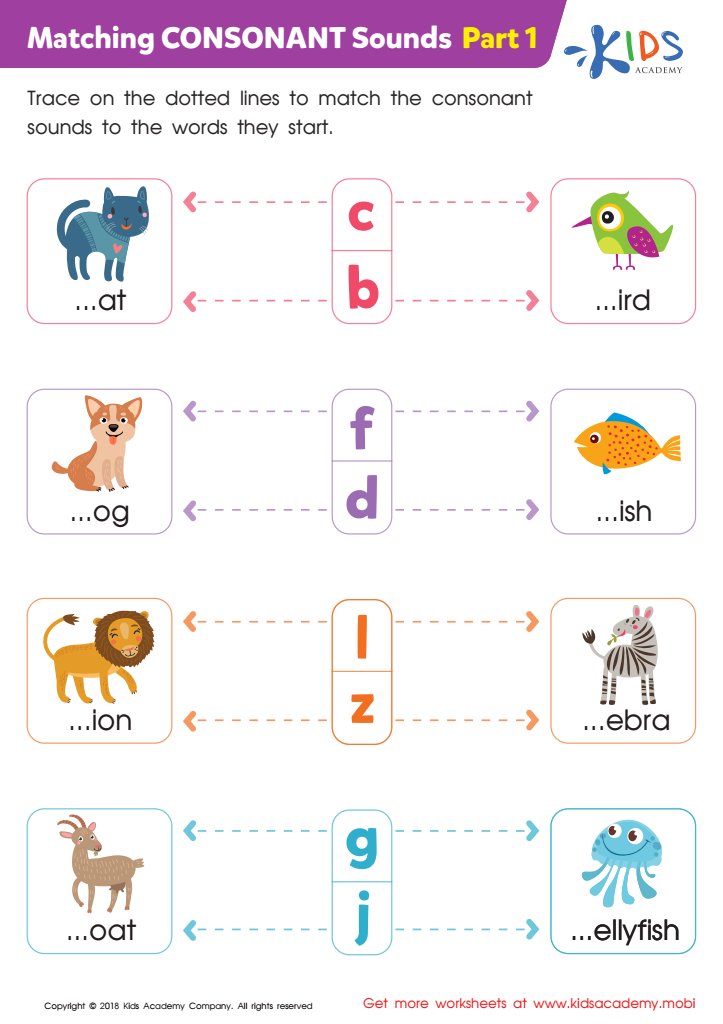

Matching Consonant Sounds: Part 1 Worksheet
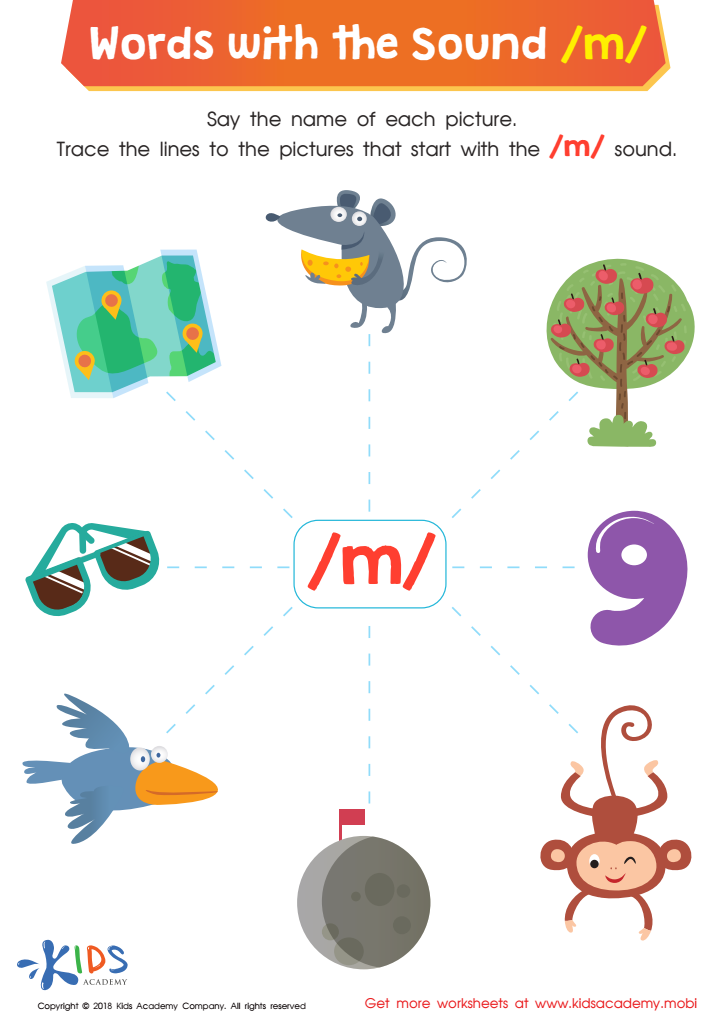

Words with Sound M Reading Worksheet
Normal beginning consonants are crucial for children aged 4-8 because they form the foundation for effective communication and literacy development. During these early years, children are at a critical stage where they are learning to articulate sounds correctly, which will significantly impact their ability to read, write, and spell. When children correctly pronounce consonants at the beginning of words, they are better able to link sounds to letters, a critical step in phonemic awareness. This lays the groundwork for reading fluency and comprehension.
For parents and teachers, focusing on beginning consonants helps identify and intervene in potential speech or learning difficulties early on. Early intervention can prevent minor issues from becoming more significant academic challenges later. Children who struggle to pronounce beginning consonants may have trouble with phonetic decoding, which is essential for reading simple texts and later advancing to more complex material.
Moreover, mastery of beginning consonants enhances children's confidence in their communication skills. They are more likely to participate in classroom activities, social interactions, and feel capable academically. By supporting this aspect of their linguistic development, parents and teachers are directly contributing to a child's overall cognitive and social growth, setting them up for continued academic success and effective communication throughout their lives.

 Assign to the classroom
Assign to the classroom
